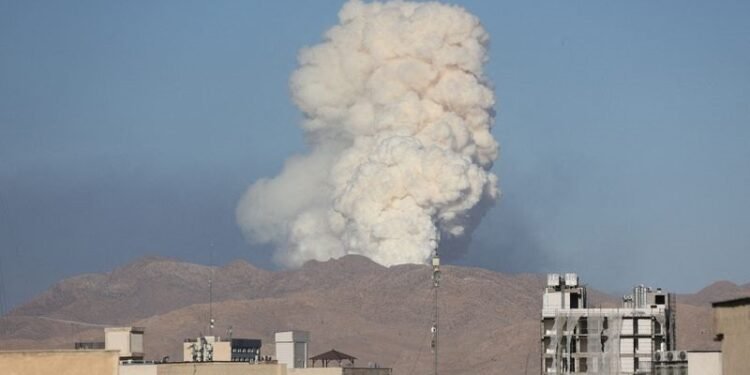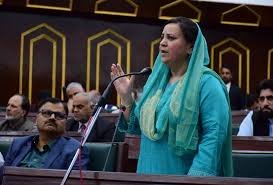Washington: President Donald Trump has said that the US military struck three sites in Iran, directly joining Israel’s effort to decapitate the country’s nuclear programme in a risky gambit to weaken a longtime foe amid Tehran’s threat of reprisals that could spark a wider regional conflict.
The decision to directly involve the US comes after more than a week of strikes by Israel on Iran that have moved to systematically eradicate the country’s air defences and offensive missile capabilities, while damaging its nuclear enrichment facilities.
But US and Israeli officials have said that American stealth bombers and a 30,000-lb bunker buster bomb they alone can carry offered the best chance of destroying heavily-fortified sites connected to the Iranian nuclear programme buried deep underground.
“We have completed our very successful attack on the three Nuclear sites in Iran, including Fordow, Natanz, and Esfahan,” Trump said in a post on social media on Saturday.
“All planes are now outside of Iran air space. A full payload of BOMBS was dropped on the primary site, Fordow. All planes are safely on their way home.”
Trump said B-2 stealth bombers were used but did not specify which types of bombs were dropped. The White House and Pentagon did not immediately elaborate on the operation.
Iran’s top security body to decide on Hormuz closure after Parliament approval: Reports
Iran’s Supreme National Security Council must make the final decision on whether to close the Strait of Hormuz, Iran’s Press TV said on Sunday, after Parliament reportedly approved the measure. The decision to close the strait, through which around 20% of global oil and gas demand flows, is not yet final. But lawmaker and Revolutionary Guards Commander Esmail Kosari told the Young Journalist Club on Sunday that doing so is on the agenda and “will be done whenever necessary.”
US doesn’t want to pursue war with Iran: Pentagon
Defence Secretary Pete Hegseth said that America “does not seek war” with Iran in the aftermath of a surprise attack overnight on three of that country’s nuclear sites. The mission, called “Operation Midnight Hammer”, involved decoys and deception, and met with no Iranian resistance, Hegseth and Air Force Gen Dan Caine, chairman of the Joint Chiefs of Staff, said at a Pentagon news conference. “This mission was not and has not been about regime change,” Hegseth added. Caine said the goal of the operation — destroying nuclear sites in Fordo, Natanz and Isfahan — had been achieved. “Final battle damage will take some time, but initial battle damage assessments indicate that all three sites sustained extremely severe damage and destruction,” Caine said.
US wants to pursue diplomatic process with Iran: Vice President Vance
Vice President JD Vance said on Sunday that the United States had successfully set back Iran’s nuclear weapons program, adding that President Donald Trump now hopes to pursue a diplomatic solution. “We do not want to protract this or build this out anymore than it’s already been built out. We want to end their nuclear program,” Vance said, speaking on NBC’s “Meet the Press with Kristen Welker.” “We want to talk to the Iranians about a long-term settlement here,” he added.
US strikes ‘obliterated’ Iran’s nuclear ambitions, Pentagon chief says
US Defence Secretary Pete Hegseth said on Sunday that US military strikes against Iranian nuclear facilities were an incredible and overwhelming success that have obliterated Tehran’s nuclear ambitions. The US strikes included 14 bunker-buster bombs, more than two dozen Tomahawk missiles and over 125 military aircraft, in an operation the top US general, General Dan Caine, said was named “Operation Midnight.”
Putin has no plans to talk to Trump after US strikes on Iran: Kremlin
Russian President Vladimir Putin has no immediate plans to dial his US counterpart Donald Trump after the US bombardment of Iranian nuclear facilities, the Kremlin said on Sunday. “There are no such plans,” Kremlin Spokesman Dmitry Peskov said. However, he added that a call can be quickly arranged in case of need. His remarks came when asked about the possibility of a phone call between Trump and Putin after US strikes on three Iranian nuclear facilities on Sunday.



















